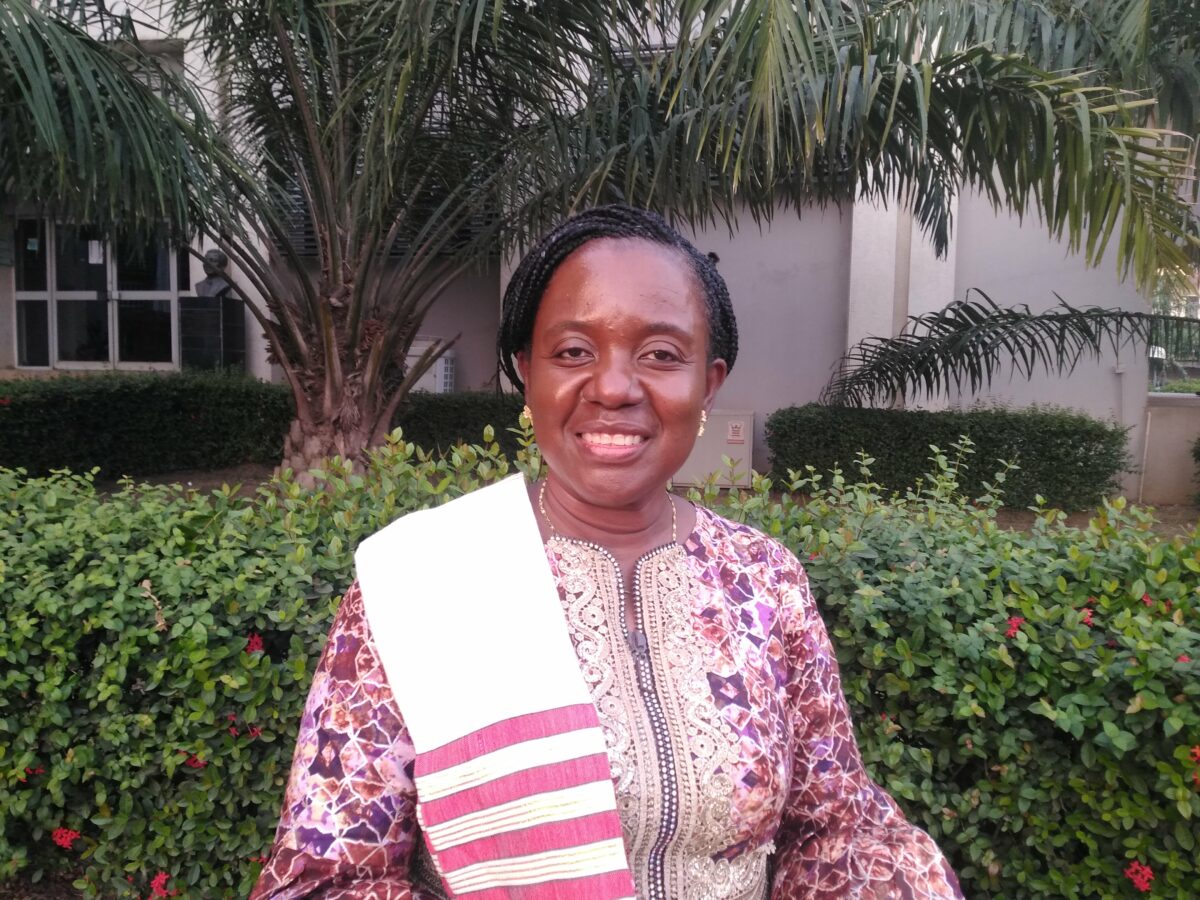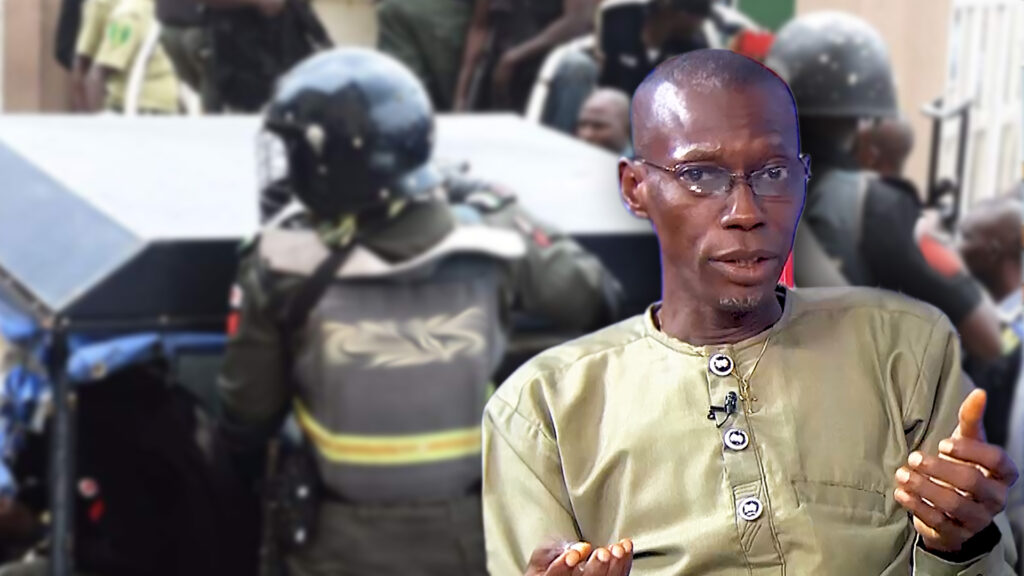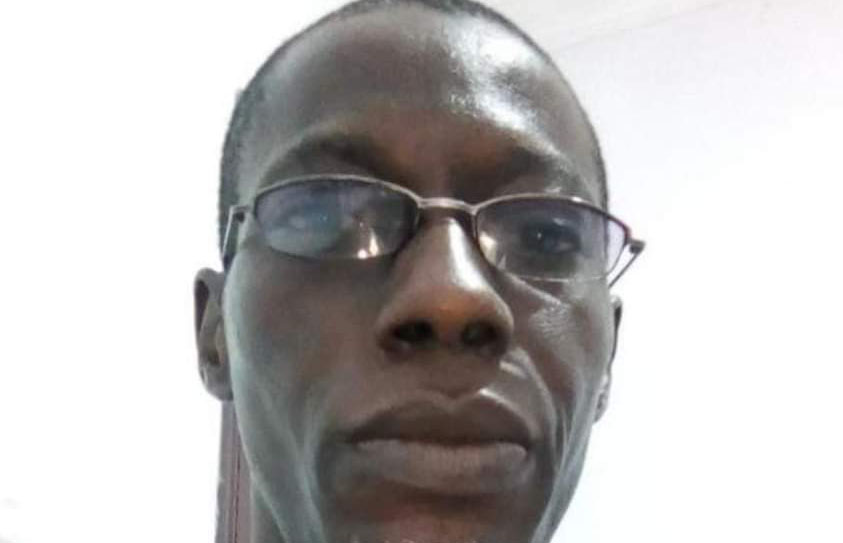Professor Olayinka Omigbodun, the Provost of the College of Medicine, University of Ibadan (CoMUI), addressed the alarming exodus of health care specialists from Nigeria at the induction ceremony of the 2022 graduating class on Monday.
FIJ met with Omigbodun after the induction ceremony to get more insights into CoMUI’s position on what she referred to as a haemorrhage in Nigeria’s healthcare system.
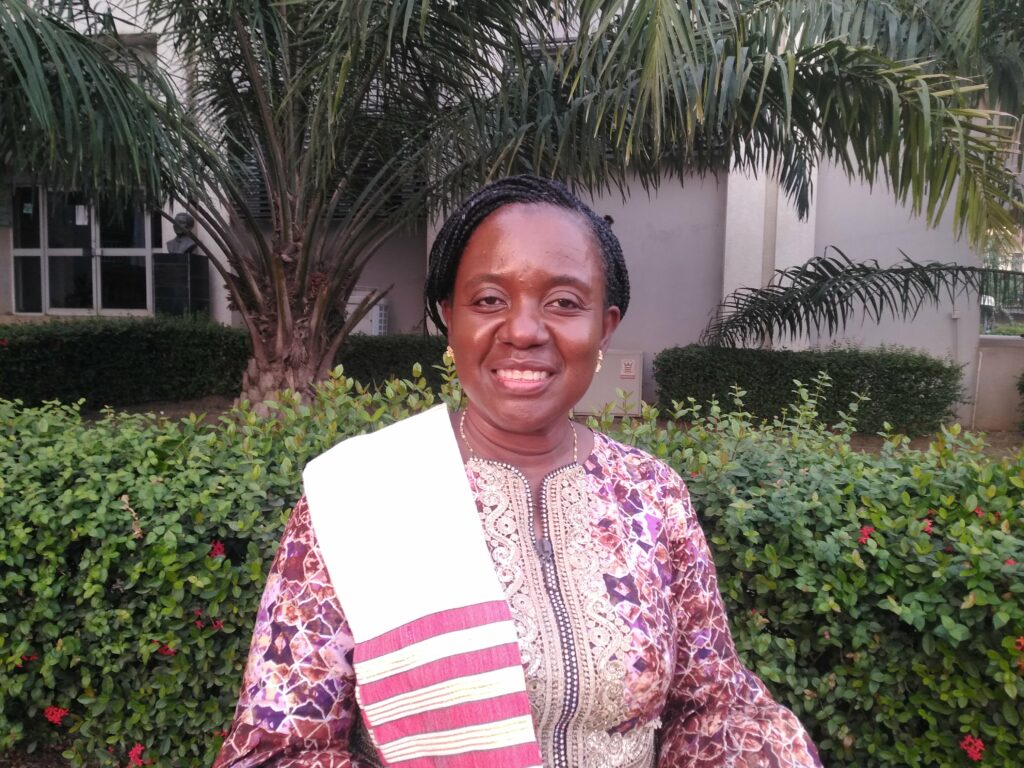
“I spoke about the emigration issue in my talk at the induction ceremony and said ‘let’s stop the haemorrhage’. A haemorrhage is an uncontrolled loss of blood which can lead to death if not dealt with immediately. It’s an emergency. Right now, we are having a haemorrhage of health care specialists as they are emigrating. Our doctors and nurses are moving out of the country in droves and, if we don’t do anything about it, we will have a very serious problem,” Omigbodun said.
“I feel that the government needs to put policies in place to give these health care professionals hope, meaning and fulfillment so that they can stay within the system that has trained them.
READ ALSO: 10 of 13 Doctors Left UCH Department in One Year, No Replacement
“There are instances of specialists waiting two or three years after their residency to get a position as a consultant because the positions are open in Abuja and there are so many bottlenecks. These specialists cannot wait for two years; they have to eat; they have to support their family. Nigeria is a big country; there should be a decentralisation of employment.
“Once we have a chief executive officer such as a chief medical director or a vice chancellor in charge of an institution, and the government has provided a quota of employees, they should be able to replace employees who retire or die. They don’t have to go to Abuja one hundred times.”
CONTEMPORARIES EARN ×20 WHAT NIGERIAN PROFESSOR OF PSYCHIATRY EARNS
Speaking more on why many health specialists leave Nigeria, CoMUI’s provost pointed at remuneration.
Omigbodun has been a professor of psychiatry since 2008. She told FIJ that she goes home with $500 salary as a university teacher.
“As a professor for many years, I’m earning just about $500 as a teacher in the university. Then I get a few additional allowances. My contemporaries abroad earn a minimum of around $10,000. We have to address remuneration because our specialists are just as capable and good as those in other countries. I feel the depreciation of the naira, our currency, has contributed to this problem, but we need to address remuneration,” Omigbodun said.
“People need to feel valued because those leaving to Saudi Arabia are not going to play there. They’ve seen that remuneration is better and they need to build houses, send their children to school and plan for the future. Doctors are highly skilled professionals and those at the college of medicine’s MBBS programme are the best of the best; they are the top of their class. Admission is of a very high quality. We have to let these professionals know that they are valued.
READ ALSO: Philip Ozuah Donates $1m to UI College of Medicine’s Hostel Project
“Other countries scout for gifted students and create systems, which include scholarships, to train them and retain them as specialists. They are the ones they use to build their system. What we are doing in Nigeria is almost the reverse. For the doctors from today’s (Monday) induction, I would have thought that there would be plans to encourage them. We should be interested in their plans, particularly those at the very top, for the residency programmes and other opportunities they may be interested in. We should engage them and give them hope; let them understand that your country needs you.
“Even when our professionals want to work abroad, we can still offer them positions and have reasonable negotiations with them. ‘We can pay for your PhD for three years; you can even teach on Zoom’. [We should] start to negotiate with them and get them involved in the system.”
Omigbodun said that the mounting insecurity and a great deal of corruption is discouraging health specialists in Nigeria.
Young people and doctors look around and “do not see a future”, Omigbodun said about Nigeria’s politics and governance.
EVERYONE CANNOT LEAVE, FG IS OVERWHELMED
Dr Tajudeen Sanusi, the registrar of the Medical and Dental Council of Nigeria (MDCN), thinks not every health specialist is leaving the country.
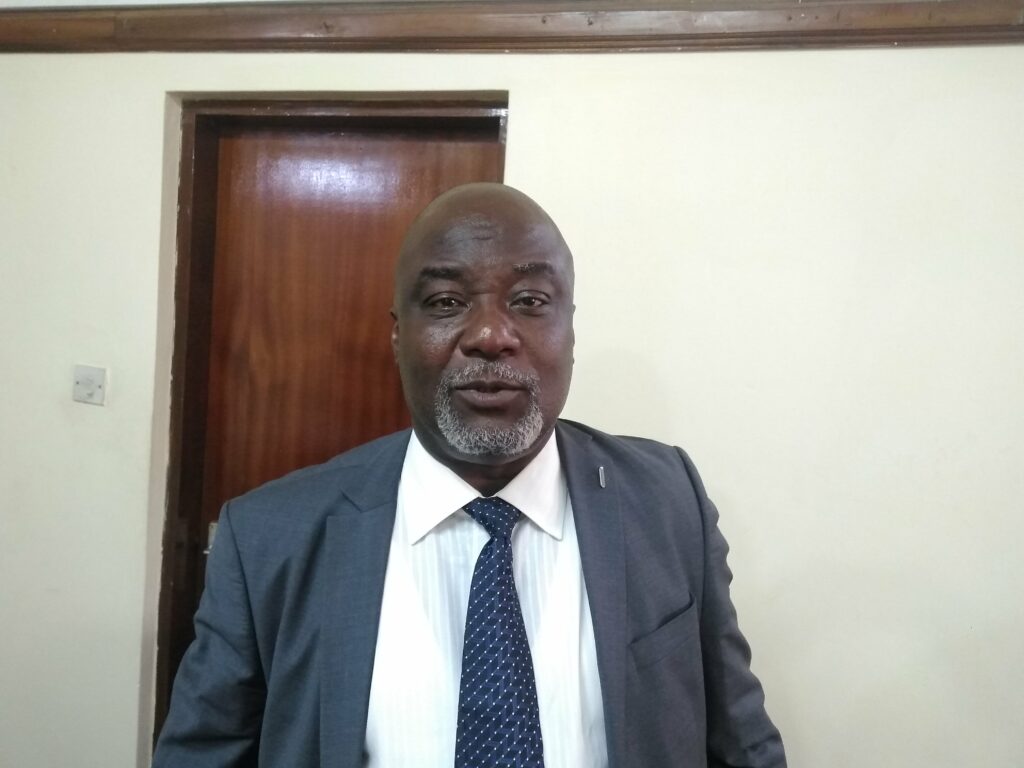
Sanusi adjudged those specialists as those who wanted a new experience. According to Sanusi, ‘japa’ is a trend popular among the least experienced specialists.
“The trend of ‘japa’ is for those who have not been out there. That is why they think everything is rosy. Some of us are lucky that we had some training from outside the country and we know what it is to believe that Nigeria is still the best,” Sanusi told FIJ on Monday.
“On the other hand, assuming all of the doctors intend to leave the country, if everyone goes out, who will treat their extended families here? Who will treat their relations here?
“We cannot all leave. Yes, you can go there because they have better infrastructure and facilities. Get the training, then come back and impart the knowledge on the people here, because a healthy nation is a wealthy nation.”
Sanusi went on to claim that the country was not suffering from a scarcity of health care workers.
“It’s not like the doctors are scarce per se. The Federal government is already overwhelmed, the states are neither employing nor investing in health. A load that is supposed to be shared by four is carried by only one. Won’t that one be tired? The FG is already overwhelmed,” Sanusi said.
“Now, we have about 42 institutions training house officers. They are owned by the federal government. The ones owned by the state governments are not doing anything. When the states are not employing and are not investing in health, there will be problems.
“Maybe if we have a unitary system, like the NHS in the United Kingdom, we can employ health specialists centrally and post them wherever. This may require a constitutional amendment because health is on the concurrent list, meaning local government and states can’t go into it. This is why some states have teaching hospitals.
“In the whole context, the local should concern itself with the primary, states should handle secondary and some specialist hospitals, while the federal government should handle tertiary health institutions.
“Minor medical cases such as malaria and headaches ought to be handled by the primary health care centres, but they flock to the tertiary institutions. If there is equitable distribution of health care workers, we won’t have much complaints.”
READ ALSO: Resident Doctors Ngige, Say ‘You’re Not the First To Threaten Us’
HOPE DOCTORS WHO LEAVE THE COUNTRY DON’T FORGET NIGERIA

John Odigie-Oyegun, the chairman of the governing council of the University of Ibadan, described the emigration of health care specialists as a necessary phase in Nigeria’s health care history.
Odigie-Oyegun voiced his belief in the long term gains of emigrating specialists.
“Just like the provost of the college of medicine said, if health care specialists are leaving the country, they shouldn’t forget Nigeria. There’s no better way to put it. All Nigeria-trained health care specialists should remember that the country has invested in them,” Odigie-Oyegun told FIJ on Monday.
“These days, I read in the media how people are lamenting about Nigeria being in trouble because of those leaving. What trouble? Those leaving continue to be Nigerians. We should look at the history of India and learn. There was a time the people of India were so hungry and some even collapsed on the streets, yet they were producing very good first class specialists. Most of those specialists had gone abroad too. The implication today is that there is no international institution where you won’t find a senior specialist from India.
“If 100 Nigerians leave and 10 percent of that population vows never to return, it’s all good. Another 20 percent will be returning to the country occasionally. The remaining 70 percent will eventually come back to settle in Nigeria. Meanwhile, while they are abroad, the resources they generate in terms of their remittance to their home country will be substantial and very meaningful.
“We are loaning them for a period. They will go and distinguish themselves. In a sense, they will become ambassadors of the nation. First rate surgeons, cardiologists and doctors. So, when people hear about fraudsters from Nigeria, the world will also hear of the first rate individuals in all walks of life from our country too. They will do us a world of good.
“Things are hard. That’s why they are going. But they don’t divorce their country. A lot of them still come back to Nigeria and settle down with Nigerians. We should see this as a temporary glitch.”
BITTERSWEET SITUATION
When asked about the dangers of this glitch in the short term, Odigie-Oyegun said that it was a bittersweet situation.
Odigie-Oyegun stated that Nigeria had not offered some exiting doctors an alternative.
“The doctor today does not have the money to open a clinic if they so desire it. Patients cannot afford drugs and there’s a lot of challenges. If specialists want to go abroad to earn and add to their expertise, why should you stop them? If there was an alternative, then we would have a case against those leaving. I know doctors who beg for consultancy placement,” he said.
“It is a bittersweet situation. We are losing them; we are sad. But it is good for them and it will eventually be good for the country in the long run.
“Of course, we need more doctors. We have not met the doctor-patient ratio of the World Health Organisation (WHO). But can we afford it? We struggle to even pay for bedspace in our hospitals. The current situation is almost tragic.
“It has become obvious that the federal government cannot fund all the institutions. Only a few state governments can support the federal government. We need a drastic change in approach. Universities must be given more freedom to explore ways to source for funds.”
Subscribe
Be the first to receive special investigative reports and features in your inbox.


